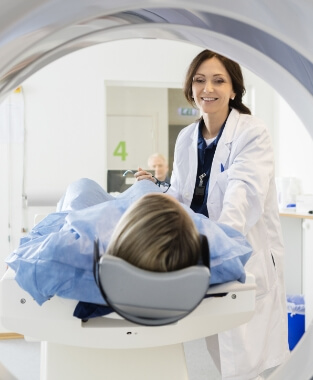March is Brain Injury Awareness Month. As the most complex and important organ in the body, proper protection it vital. While the skull is thick enough to protect the brain from minor injury, serious injuries can cause permanent damage and possible death. With proper knowledge and preventative measures, you can do your part to avoid a traumatic brain injury.
Wear Your Seat Belt
A car crash means a harsh and sudden stop. Because of the laws of motion, you will continue to move at the speed you were traveling. The only thing preventing you from going through the windshield or hitting the steering wheel is the presence of your seat belt and protection from the airbags. Ensure your seat belt is snug but not prohibitively tight. It should go across your shoulder and waist. Always wear your seat belt whether you are in the front or back seat.
Don’t Text and Drive
It takes about a quarter of a second to see and react to a dangerous situation on the road — for example, a car veering into your lane or coming to a sudden stop. If that quarter-of-a-second happens and you’re glancing at your phone, you will not be able to react in time. Keep your phone turned off while you drive, or if you must respond, pull over as soon as you can.
Wear Proper Head Gear
Sports-related injuries are some of the most common causes of head trauma after car accidents and slip-and-falls. There are far too many cases in which a patient wasn’t wearing appropriate headgear. Before playing a game, practicing, or doing martial arts sparring, have the coach or trainer check headgear to make sure it’s secure and fits properly.
Prevent Slips and Falls
If you see spilled liquid or scattered objects on the floor where people walk, clean up the mess immediately. Slip-and-falls are some of the most common accidents that cause head injuries. Check mats for bumps or edges that could cause people to trip and properly hide all power cords away from walking areas.
Child-proof Your Home
Sharp corners and edges on furniture can cause traumatic brain injuries to a child that’s running around or who falls down a set of stairs. Install padding on furniture and baby gates on stairs to lessen the likelihood of a head injury.
Signs of Traumatic Brain Injury
Seek medical help immediately if you experience or notice any of the following symptoms after getting struck in the head:
-
Dizziness
-
Changes in vision or hearing
-
Excessive bleeding
-
Slurred speech
-
Confusion
-
Disorientation
-
Loss of consciousness
No matter how prepared one may be, accidents can still occur. At Dallas Medical Center, we are proud to be the closest accredited Level IV trauma center in the area. Our full-service ER and trauma center is always open to ensure you get the care you need.


